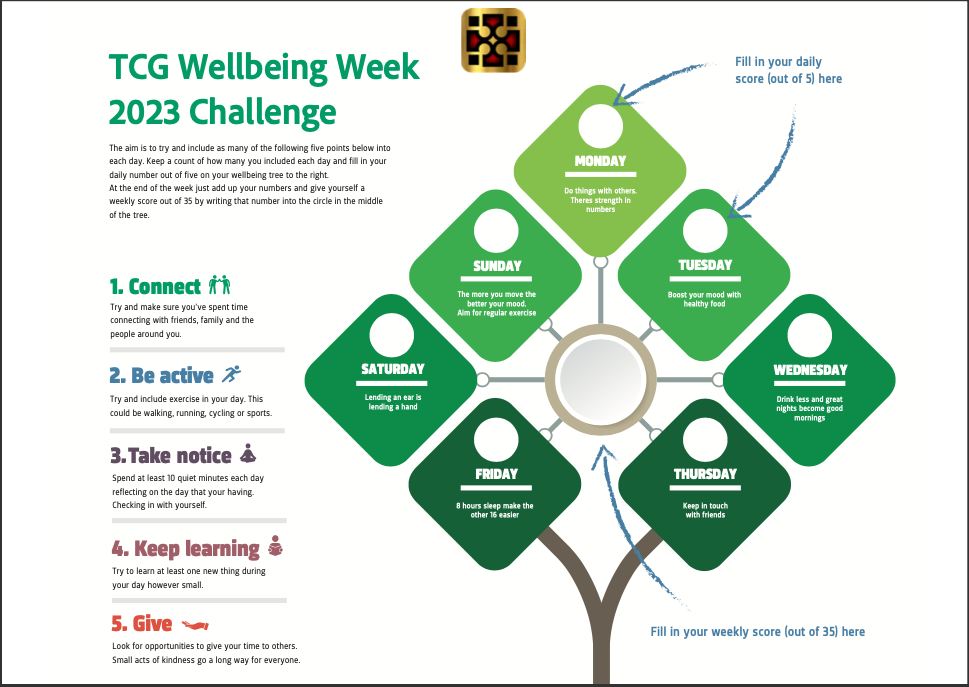What is Wellbeing?
1. Wellbeing is feeling good about yourself, the world around you and functioning well in everyday life, most of the time.
2. Being resilient and coping with the normal stresses of life is also an important attribute of wellbeing.
3. There are many things that can influence your wellbeing. These include exercise, diet, sense of belonging, friendships, school, self-care, where we live, and sense of purpose.
4. Wellbeing is much broader than simply how happy you are. It also includes how satisfied you are with your life, your sense of purpose, and how in control you feel.
5. Small improvements in wellbeing can increase our ability to lead a more fulfilling life. And to thrive!
Click here to read more about the 5 a day for Wellbeing www.mentalhealthireland.ie/five-ways-to-wellbeing/?external=1
Ms Flynn's Breakfast tips
Breakfast gives you the energy you need to get things done and helps you focus at school.
Many studies have linked eating breakfast to good health, including better memory and concentration, lower levels of “bad” cholesterol, and lower chances of getting diabetes, heart disease, and being overweight.
It’s hard to know, though, if breakfast causes these healthy habits or if people who eat it have healthier lifestyles.
But this much is clear: Skipping the morning meal can throw off your body’s rhythm of fasting and eating. When you wake up, the blood sugar your body needs to make your muscles and brain work their best is usually low. Breakfast helps replenish it.
Many of us skip breakfast because they’re rushing to get out the door. That’s a mistake. You need food in your system long before lunchtime. If you don’t eat first thing, you may get so hungry later on that you snack on high-fat, high-sugar foods and then focussing at school is even more impossible!
Many studies have linked eating breakfast to good health, including better memory and concentration, lower levels of “bad” cholesterol, and lower chances of getting diabetes, heart disease, and being overweight.
It’s hard to know, though, if breakfast causes these healthy habits or if people who eat it have healthier lifestyles.
But this much is clear: Skipping the morning meal can throw off your body’s rhythm of fasting and eating. When you wake up, the blood sugar your body needs to make your muscles and brain work their best is usually low. Breakfast helps replenish it.
Many of us skip breakfast because they’re rushing to get out the door. That’s a mistake. You need food in your system long before lunchtime. If you don’t eat first thing, you may get so hungry later on that you snack on high-fat, high-sugar foods and then focussing at school is even more impossible!









